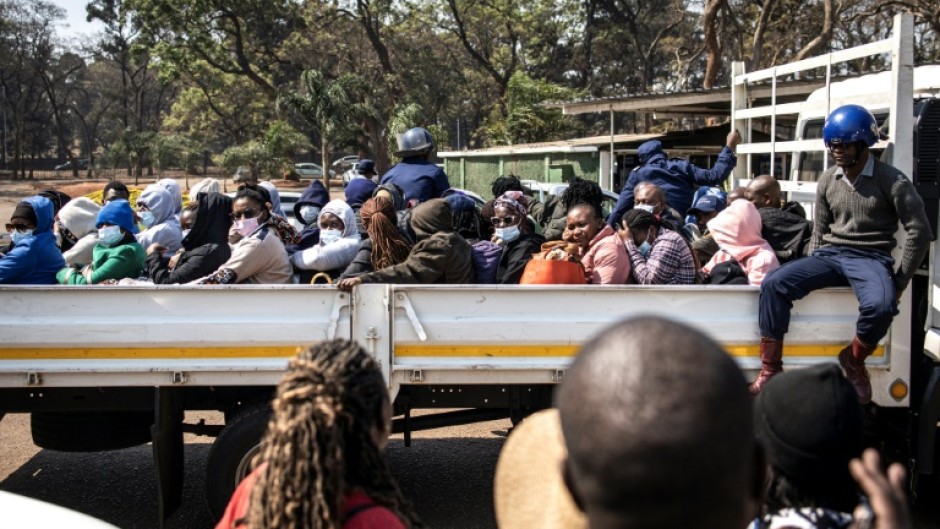HARARE - Foreign poll observers on Friday said Zimbabwe's presidential and legislative elections failed to conform to regional and international standards, placing in doubt the credibility of the tense vote.
Zimbabweans went to the ballot box on Wednesday and Thursday in polling marred by delays. The vote took place against a backdrop of discontent at Zimbabwe's economic crisis.
Regional and international observers listed concerns over the canning of opposition rallies, denial of accreditation to several foreign media, missing voters' names from the roll at their polling station, biased state media and voter intimidation among the issues that sullied the election.
The head of the European Union observer mission, Fabio Massimo Castaldo, said the election "fell short of many regional and international standards".
"Violence and intimidation resulted ultimately in a climate of fear," he said.
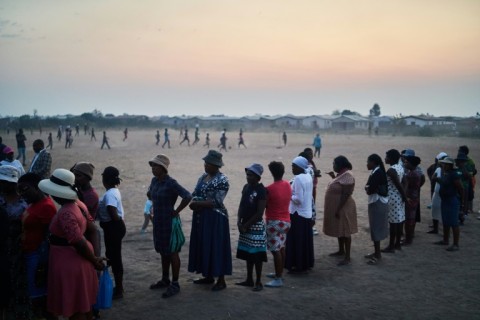
Commonwealth observer mission chair Amina Mohamed, of Kenya, said overall the voting process was "well conducted and peaceful" but a "number of significant issues" impacted on the election's "credibility" and "transparency".
"Some aspects of the... election fell short of the requirements of the constitution of Zimbabwe, the electoral act and the SADC principles and guidelines governing democratic elections," said head of the regional bloc's delegation Nevers Mumba, a former Zambian vice president.
It was a rare rebuke from the 16-nation Southern African Development Community (SADC) whose observers usually endorse polls in the member countries.
The ruling ZANU-PF party reacted angrily at the findings, dismissing those from western countries as "sanctimonious notions" coming from former colonial powers with no right to teach democracy to Zimbabwe.
"We are dismissive of the rumblings, the mouthing of Nevers Mumba," party spokesman Christopher Mutsvangwa told a press conference in Harare, describing the head of the SADC mission as a biased "preacher".
"We can't be perfect. But there is a definitely no ill will in our imperfections," he said of the voting process.
The election is being watched across southern Africa as a test of support for 80-year-old President Emmerson Mnangagwa's ZANU-PF party, whose 43-year rule has been battered by a moribund economy and charges of authoritarianism
Voting was forced to stretch into an unprecedented second day over delays in printing of ballot papers in some key districts including in the opposition stronghold Harare.
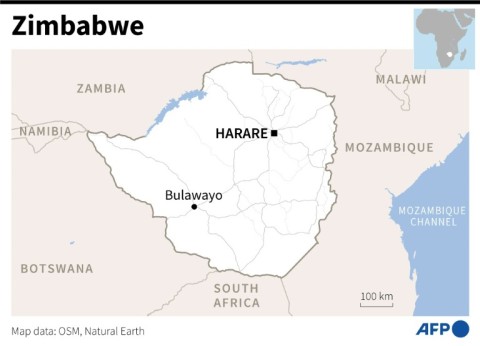
The largest opposition, Citizens Coalition for Change (CCC), which poses the biggest challenge to Mnangagwa and had more than 100 of its campaign meetings banned, lashed the electoral process as "fundamentally flawed".
Less than a quarter of polling stations in Harare -- an opposition stronghold -- opened on time on Wednesday, the first day of voting.
The problems forced Mnangagwa, who is seeking a second term, to issue a late-night directive extending the vote by another day.
Zimbabwe Electoral Commission deputy chairman Rodney Kiwa told AFP on Thursday the authorities were still confident of announcing the results before the Tuesday deadline.
- 'Grave concern' -
CCC leader Nelson Chamisa slammed the delays as "a clear case of voter suppression, a classic case of Stone Age... rigging".
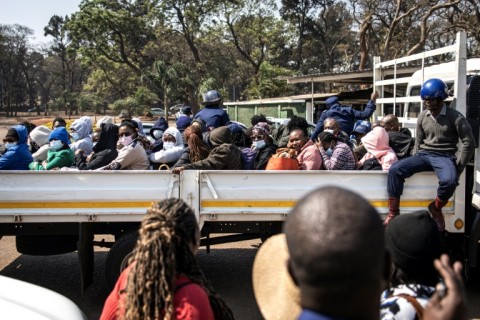
Chamisa, 45, is the main challenger to Mnangagwa, 80, who came to power after a coup that deposed late ruler Robert Mugabe in 2017.
Meanwhile 41 local monitors were arrested late at night on election day and had their computers and mobile phones confiscated by police who alleged the equipment was "used to unlawfully tabulate" results from polling stations, describing the activity as "subversive and criminal".
Most of those arrested, mainly women and men in their 20s and early 30s who work for pro-democracy NGOs, arrived Friday at a Harare court crammed into the back of an open white truck to appear before a magistrate.
As they waited in the sun, some waved and held back tears as they were greeted by a small group of family and friends.
Several sported blue caps or green t-shirts bearing the words "election observer".
"Police heavily armed with AK-47 rifles, truncheons and other assortments of weapons swooped on the accused and arrested them in a dragnet style," defence lawyer Alec Muchadehama told the judge who set bail at $200 (185 euros).
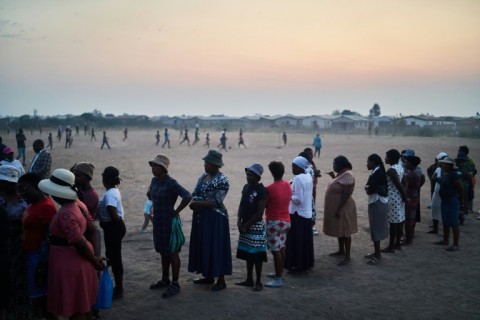
The arrests add "to our grave concerns", said the EU polls observer chief.
"At this stage it's all pointing towards a disputed election," said Kealeboga Maphunye, an African studies professor at the University of South Africa in an online debate organised Friday by the South Africa-based Southern African Liaison Office.
By Umberto Bacchi

